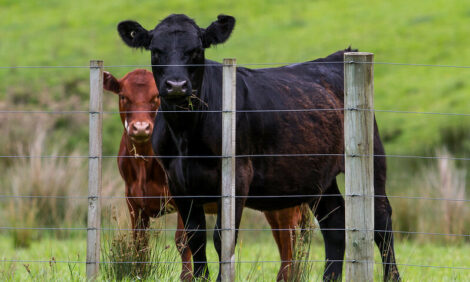



Project Launched Towards Sustainable Livestock in Africa
AFRICA - A project towards sustainable and productive livestock in Africa is launched on Thursday, by the UN Food and Agriculture Organization (FAO) in partnership with the United States Agency for International Development (USAID) and six African countries.The project, dubbed Africa Sustainable Livestock 2050 (ASL2050), aims to facilitate dialogue, knowledge sharing and consultation among livestock, health and environment stakeholders in order to identify opportunities and threats associated with the long-term development of livestock.
It also aims to agree upon priority reforms and investments to create the capacity needed to ensure a sustainable development of the livestock sector in the next three or four decades.
ASL2050 includes six African governments: Burkina Faso, Egypt, Ethiopia, Kenya, Nigeria and Uganda, which are anticipated to experience major expansion and intensification in their livestock systems in the coming decades, according to FAO.
ASL2050 aims to facilitate a dialogue between countries, ministries, and specialists to help Africa prepare for the changes, building the capacity to maximize benefits and minimize challenges.
The project will facilitate dialogue between livestock, environment, livelihoods and public ministries of the six African countries to identify actions that can be taken now to ensure sustainable and productive livestock sector while protecting the environment and public health.
Speaking at the launching ceremony in Ethiopia's capital Addis Ababa, Patrick Kormawa, FAO Sub-regional Coordinator for Eastern Africa, noted that FAO would make every effort to support the smooth and effective implementation of ASL2050.
"As the ASL2050 is a complex project which looks beyond current policies and programmes, and requires inputs from multiple sectors, it will require a one-health approach that utilizes expertise from multiple disciplines," said Mr Kormawa, who is also a FAO Representative to the AU and UNECA.
He stated that the presence of representatives from ministries responsible for livestock, health and environment, as well as FAO and other organizations indicates a clear intent for ASL2050 to build strong collaborative partnerships across sectors to support sustainable and healthy livestock systems for the countries.
"The FAO Regional Office for Africa based in Ghana, and the FAO Sub-regional Office for Eastern Africa, based in Addis Ababa, will make every effort to support the smooth and effective implementation of ASL2050, not only for the benefits of the countries present here today, but to draw on lessons learned from this program and to roll them out throughout the entire Africa continent," he said.
Fekadu Beyene, Ethiopian Minister of Livestock and Fishery, said the project provides opportunity to share expertise and experiences between ministries and countries towards building a sustainable livestock sector in coming decades.
"We are looking forward to partnering with USAID and FAO to examine our livestock systems now, and realize the potential they have for the future through the sustainable implementation of the (country's) Livestock Master Plan," said the minister.
As the African economy in the next 20 and 30 years is expected to continue to grow fast, meat, egg and dairy consumption at household level will significantly increase on the continent, which in turn provides opportunity for the growth of livestock sector, but also poses challenges for public health and environmental protection, according to a joint release by FAO and USAID.
The demand for milk, meat and eggs is going to double, triple and even quadruple in some African countries, according to Leslie Reed, Director of USAID Ethiopia Mission.
"With ASL2050, we are going to collaborate with governments to work out how to build the foundations for this change, so that African farmers and consumers will be better off," said Ms Reed.
"More livestock means more feed is needed, and land use will change. This presents some challenges for the environment that we need to start preparing now," she said.
It was noted on the occasion that ASL2050 will also anticipate long-term public health risks such as unexpected disease spread from livestock to humans, and identify policies or procedures to implement now that can reduce the risks in the future.
TheCattleSite News Desk


